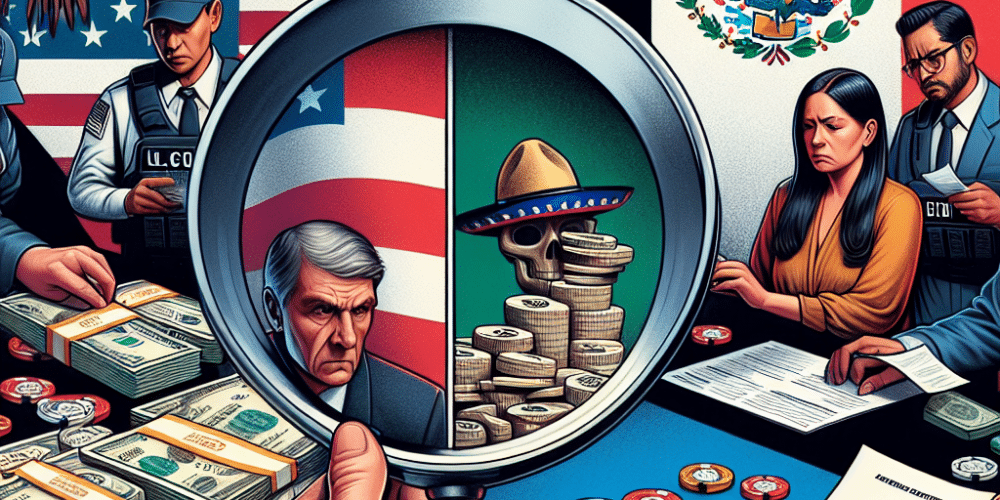On November 13, in response to a significant operation by Mexican authorities targeting suspected cartel activities, the United States issued a new round of sanctions aimed at dismantling a money laundering network allegedly run by the Sinaloa cartel through various casinos. This move followed Mexico’s decision to initiate an investigation and suspend operations at 13 casinos implicated in the scheme.
US Treasury officials detailed that the Sinaloa cartel had been using these casinos to launder millions of dollars. The method involved individuals with no apparent income engaging in gambling activities, winning large sums that were ostensibly legitimate, then transferring these funds to offshore accounts before circulating them back into Mexico. This revelation casts a shadow over the integrity of these gaming establishments, suggesting a sophisticated layer of financial subterfuge.
Initially, Mexican authorities hesitated to confirm any cartel involvement with the casinos. However, the US Treasury’s actions and statements have highlighted a possible connection. John K. Hurley, the Under Secretary for Terrorism and Financial Intelligence, emphasized the seriousness of the situation: those who aid the cartels will face consequences. He expressed gratitude for Mexico’s partnership in tackling this issue, underscoring the international dimension of the crackdown.
The sanctions specifically target members of the notorious Hysa family, a faction within the cartel, and extend to 20 businesses, including the targeted casinos and several high-profile restaurants. This move is part of a broader strategy to disrupt the financial underpinnings of the cartel’s operations.
In response to the US measures, Mexico’s Treasury confirmed the identification of additional transactions linked to the cartel’s activities. These funds were traced to multiple international destinations, including Canada, the United States, Panama, Romania, Poland, Albania, and Belize, indicating a complex network of financial channels. As a result, Mexico expanded its list of sanctioned entities, adding five more companies believed to be complicit in the laundering activities.
A statement from Mexico’s Treasury highlighted the importance of international cooperation to thwart the misuse of financial systems for criminal purposes. The ongoing battle against cartel crime remains a significant challenge for both Mexican and US governments, given the cartels’ adaptability and extensive networks that bypass traditional legal frameworks.
Despite the sanctions, cartels have shown resilience, often finding alternative methods to sustain their operations. This has included exploiting the identities of unsuspecting patrons within the casinos, who inadvertently become conduits for international money transfers. This tactic not only complicates law enforcement efforts but also illustrates the cartels’ ability to leverage legal loopholes for illicit gains.
While the sanctions have had a noticeable impact on legitimate business operations linked to the cartel, they are just one part of a broader strategy required to dismantle such a sophisticated criminal enterprise. Experts suggest that sustained international cooperation and innovative enforcement strategies are crucial to effectively combating these networks.
Meanwhile, some industry observers caution that the intense focus on casinos could inadvertently harm legitimate businesses caught in the crossfire, potentially leading to economic repercussions beyond the intended targets. These concerns highlight the delicate balance authorities must maintain between enforcing the law and fostering a supportive environment for lawful enterprises.
The ongoing developments in this case underscore a growing need for robust financial oversight and transparency within the global casino and hospitality industries. As the investigation continues, both Mexico and the US reiterate their commitment to shedding light on these dark corners of international finance, ensuring that neither nation’s financial systems are exploited by criminal elements.
As further sanctions and investigations unfold, the international community watches closely. The collaboration between the US and Mexico is likely to serve as a template for future cross-border efforts aimed at dismantling transnational criminal operations. Both governments are keenly aware that this fight against organized crime is far from over, and sustained vigilance remains essential in their shared mission to uphold justice and security.

















